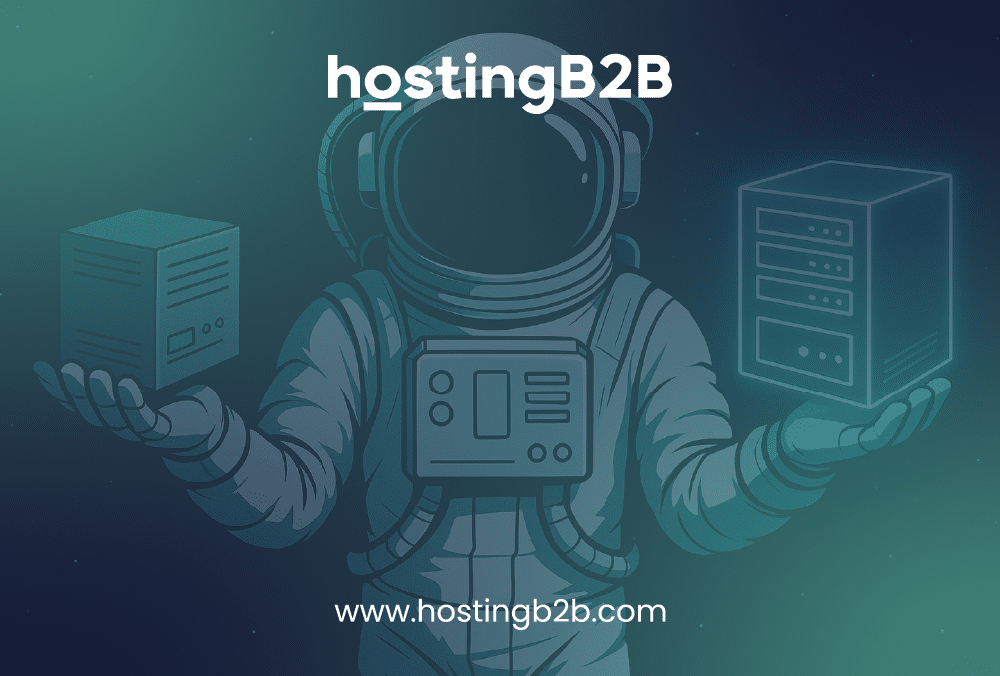Why Businesses Outgrow VPS Hosting and Turn to Dedicated Servers
As businesses expand, so do their hosting requirements. Because it offers a balance between cost and flexibility, a Virtual Private Server (VPS) is the first choice for many businesses. A VPS does have limitations, though. A dedicated server is the only option that can provide the performance, dependability, and control you need once your company reaches a certain size.
To assist you in determining when it’s time to switch, this article examines five features that a dedicated server offers that a VPS cannot.
1. Provide optimal performance without sharing resources
One physical server is split up into several virtual instances using a VPS. This implies that other users share your CPU, RAM, and bandwidth. Even with equitable resource distribution, peak usage can still negatively impact performance.
With no neighbours vying for resources, a dedicated server gives you the entire machine. Your apps function at their best, which makes it perfect for enterprise workloads, high-traffic websites, and iGaming platforms.
2. Increase Uptime and Reliability
Resource contention and “noisy neighbours” can result in downtime or performance lapses when using VPS hosting. Because you have sole access to the hardware, a dedicated server removes that risk.
Higher uptime and consistent performance are guaranteed with this configuration. Dedicated hosting provides the stability that a VPS cannot match for companies where every second of downtime results in lost revenue.
Upgrade to a Dedicated Server Today
Experience the Power of Dedicated Hosting
Boost Performance with Dedicated Servers3. Provide Total Authority and Personalisation
Because multiple users share the same underlying infrastructure, a virtual private server (VPS) restricts some configurations. On the other hand, a dedicated server lets you:
Install the operating system of your choice.
Set up security rules, firewalls, and monitoring tools as you see fit.
Use specialised software that might not be supported by a VPS.
For businesses in regulated sectors like banking, healthcare, and iGaming, this degree of complete root access and hardware customisation is essential.
4. Manage Heavy Workloads and Increases in Traffic
VPS hosting performs well in environments with moderate workloads but poorly in those with high demand. Millions of requests can be processed per second by a dedicated server without experiencing any bottlenecks.
Dedicated servers can manage heavy workloads and traffic spikes without sacrificing speed or security, whether they are used for data-intensive applications or real-time betting platforms. VPS hosting is just not scalable enough.
5. Strengthen Security and Compliance
Sharing hardware with other customers in a VPS creates possible risks in the event that another tenant has a breach. Stronger protection is provided by a dedicated server, which totally isolates your data.
Additionally, this separation facilitates compliance with stringent regulations like GDPR, PCI DSS, and ISO 27001. A VPS cannot provide the same level of assurance for industries handling sensitive data.
Round-the-Clock Support
Our certified experts are always available to resolve issues, ensure compliance, and maintain performance. For more information, contact our experts!
In conclusion
For small and startup businesses, a VPS might be the best option, but as your company grows, you’ll require more than just shared resources. A VPS cannot match dedicated servers’ unrivalled performance, dependability, customisation, scalability, and security.
A dedicated server is the best option if your company needs a hosting solution that can manage traffic spikes, mission-critical workloads, and compliance requirements.









